The Economics and Statistics Division maintains archives of previous publications for accountability purposes, but makes no updates to keep these documents current with the latest data revisions from Statistics Canada. As a result, information in older documents may not be accurate. Please exercise caution when referring to older documents. For the latest information and historical data, please contact the individual listed to the right.
<--- Return to Archive
For additional information relating to this article, please contact:
July 04, 2023HOUSEHOLD CONSUMPTION, Q1 2023 Household Consumer Expenditures
Nova Scotia's final consumer expenditures (paid for private by households) amounted to $9.453 billion in Q1 2023. This was $19,952 per household (90.4% of the national average per household). Across Canada, final consumer expenditures per household were $22,060 with the highest value in British Columbia and the lowest in Quebec.
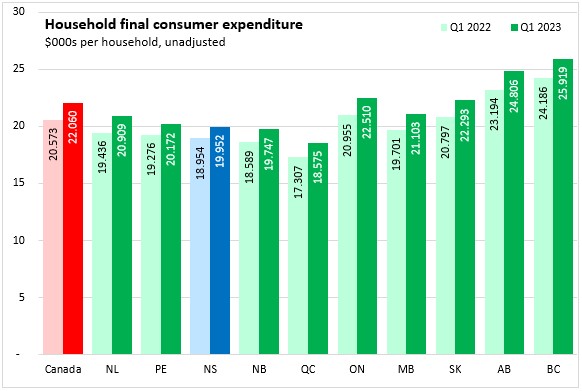
Between Q1 2022 and Q1 2023, final consumer expenditures increased by 8.4% (+9.4% nationally), which includes the effects of price increases over this period.
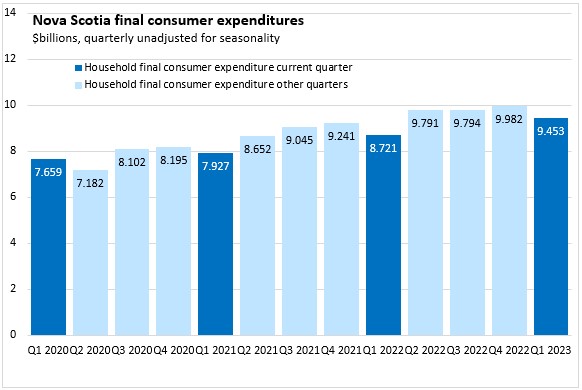
Social transfers in kind refer to services that are provided for the benefit of households but are paid for by governments and non-profits. These are primarily health and education expenditures, which add to private expenditures made on these services.
In Q1 2023, Nova Scotian households received $3.232 billion worth of social transfers in kind. This amounted to $6,823 per household (98.8% of the national average per household). Across Canada, social transfers in kind were $6,906 per household with the highest values in Manitoba and the lowest values in New Brunswick.

Between Q1 2022 and Q1 2023, the value of social transfers in kind in Nova Scotia increased by 7.8% while there was a 2.5% increase nationally.
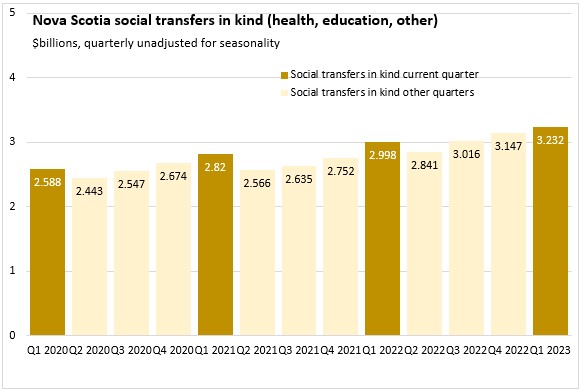
The sum of household final consumer expenditures and social transfers in kind is termed 'household actual final consumption expenditures', which reflects the benefits to households from both private expenditures as well as services provided by governments and non-profits.
Nova Scotia's household actual final consumption expenditures in Q1 2023 were $12.685 billion or $26,775 per household (92.4% of the national average per household). National household actual final consumption expenditures were $28,966 per capita with the highest value in British Columbia and the lowest value in Quebec.
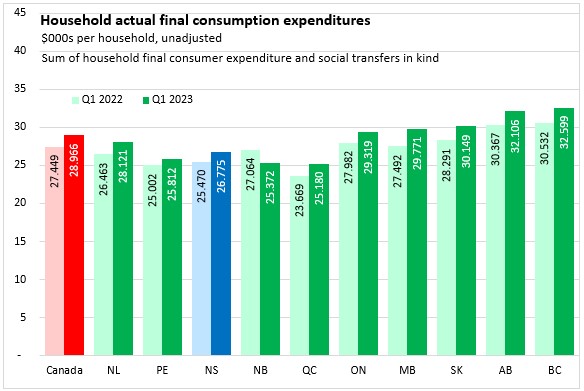
From Q1 2022 to Q1 2023, household actual final consumption expenditures increased by 8.2% in Nova Scotia (+7.7% nationally).

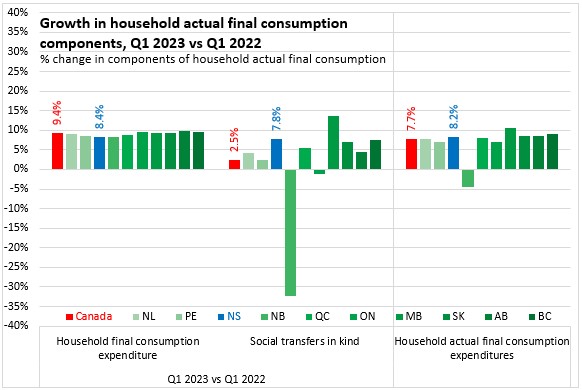
Household net savings (which includes changes in pension entitlements) increased during the pandemic. These effects appear to have been temporary and savings are returning to prior trends. After saving an average of -$1,137 per household in Q1 2022, Nova Scotia's net savings per household were -$2,207 in Q1 2023. All provinces reported decreasing net household savings in Q1 2023 (compared with Q1 2022).

Among the categories of actual final consumption expenditures, growth in per household spending was fastest for food and accommodation services, clothing and footwear, and social transfers in education comparing Q1 2023 with Q1 2022. Average per household expenditures were up in most categories with only small declines in insurance/financial, furnishings/household equipment and alcoholic beverages/tobacco.

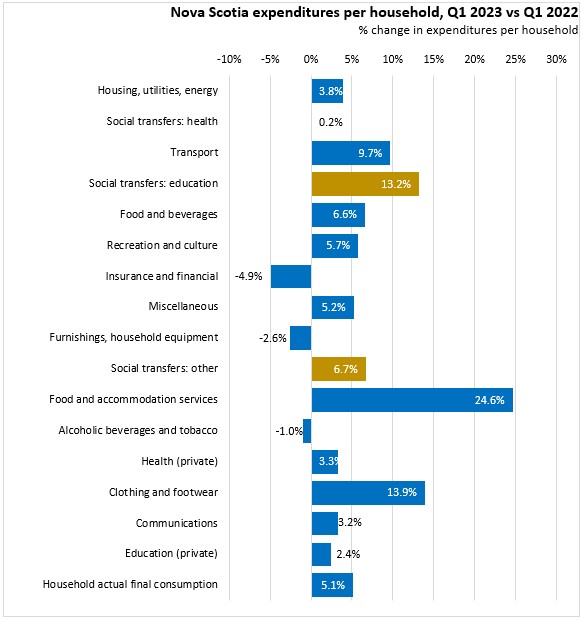
Source: Statistics Canada. Table 36-10-0663-01 Distributions of household economic accounts, income, consumption and saving, Canada, provinces and territories, quarterly (x 1,000,000)
<--- Return to Archive